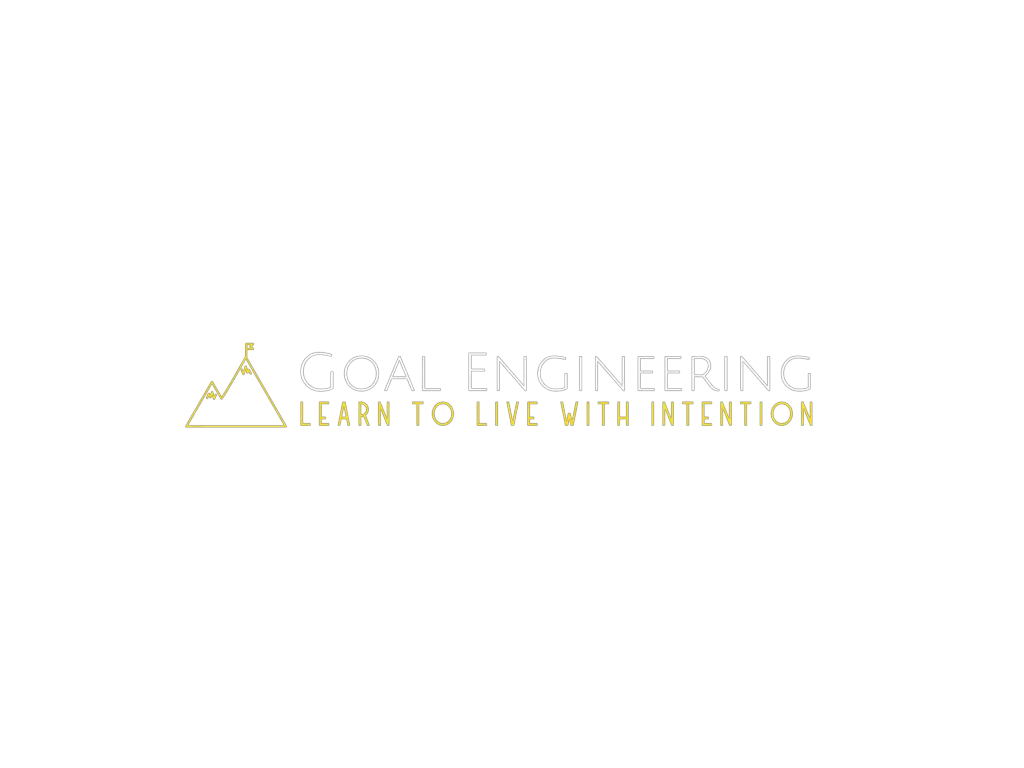Have you ever listened to a podcast or started a super long YouTube video only to find yourself completely engrossed in it an hour later? It happened to me last week when I came across this YouTube video of ultra-marathon runner Rich Roll’s interview with neuroscientist Andrew Huberman. I was stunned when Huberman explained the secret to getting infinite energy to pursue goals. And I was even more excited to learn that I had already been using it!
Let’s start with what it means to pursue goals and the tldr; version of what Huberman teaches:
To pursue a goal is to “find or employ measures to obtain or accomplish” it. Pursuing a goal includes everything you do to work on that goal to achieve it. The secret to having infinite motivation for this, as Dr. Huberman teaches, is to love the work and reward yourself for small wins along the way.
There’s a lot to explain about how this process works and how you can take advantage of it yourself. So let’s jump right in and see what Huberman can teach us!
How to Have Infinite Energy to Pursue Your Goals
Here’s what Dr. Huberman said about having infinite energy to pursue goals, with some additional things added by me in brackets for clarification:
“One of the most powerful things that any person can do is to… attach an internal sense of reward, just [a mental note to yourself] that you’re doing well, to reward yourself mentally. Just say ‘I’m doing well, I’m actually on the right path.’
The more often that we can self-reward some aspect of the process, provided it’s in the right direction of what we’re trying to achieve, the more energy we’re gonna have for that, the more focus we’re gonna have for that. And remember the reason I say energy (I don’t throw that around loosely) is that limiting amount of noradrenaline [also called norepinephrine and mobilizes the body and brain for action] is constantly being kept at bay. You’re literally buffering [lessening the impact of] the quit response.
And so when people start realizing that if they set the goals inside of the larger goal and self-reward each one of those, they essentially have an infinite amount of energy to pursue those goals. They have an infinite amount of focus to pursue those goals.”
Wow! This blew my mind when I heard it. There’s so much to unpack here! The highest level idea is this:
Mentally reward yourself for tiny wins along the pathway to reaching your goals and you will fuel the processes of your brain that give you more energy and focus as well as lessen the effect of the processes in your brain that make you want to quit.
Let’s break this down even further into the benefit and what you and I need to do to get it:
- The benefit is that you can have infinite energy and focus to pursue your goals. This happens because you can stop the processes in the brain that make you want to quit and feed the processes that motivate you to keep going.
- To get that benefit you must learn how to mentally self-reward at frequent points along the pathway to your goals.
In other words, mentally self-rewarding is the way to hack your brain so that you never quit a goal again. Imagine that when the third week in January comes and you want to quit but instead you start practicing this. You’d stick to your goal and reach it and every other goal you set for yourself.
How would that change your life? What would it meant o you to be able to reach any goal?
It still takes work, though. But it’s a lot easier to get in the habit of making a mental note of your progress than using sheer willpower alone!
Now the only question is, what’s the best way to practice this self-rewarding system? Here are a few ideas:
- It has to be an internal mental reward, not a physical external one. You’re trying to hack your brain for infinite energy so all that has to happen inside your brain. So giving yourself a Swedish Fish every time you read a page of your textbook won’t work. Mentally celebrating that win, however, will.
- This reward is better thought of as a mental celebration of the parts of the process that you’re happy about. That might include small wins, that you’re progressing toward your end goal, or how much you enjoy the process.
- As Huberman himself mentioned, you might tell yourself things like “I’m on the right path,” “I’m super happy with the progress I’ve made in the last hour,” “I’m really enjoying the progress I’m seeing,” or “This is making me remember just how much I love [insert the process part of the goal, like running or writing].”
- You could make a list of these phrases or make your own. Then you could hang them somewhere that you can see often, and look at it every hour or so while working on your goal. Reminders on your phone may be helpful as well.
- Make sure that you’re rewarding the work and progress that moves you in the right direction. If you’re wanting to get better at running, for instance, make sure that you’re correctly performing whatever aspect of running that you want to improve before mentally celebrating it.
The great thing about all of this is that Huberman didn’t just stop at telling us how to make it happen. He also explained how it’s already being done in the real world to show that it works!
How This Infinite Energy to Pursue Your Goals Works in the Real World
Right after the long quote I shared above that explains the pursuit of goals, Huberman says this:
“You see this [self-reward process] most in the special operations community.”
He then shares how he’s been able to closely observe this in the training for Navy SEALs. He’s seen it especially the training that is designed to select those who will actually become SEALs as he’s worked closely with some of them.
Huberman identifies that everybody who wants to become a SEAL shows up all pumped up and ready, thinking they’ll make it. But inevitably many quit because they can’t manage the neurotransmitters that he teaches about. They don’t know how to harness this infinite energy and focus process. But the ones who make it do.
He’s found that those who stick with it and actually become SEALs have somehow mastered this process of rewarding themselves. Some of them simply celebrate getting to a certain point in the day. Others celebrate something that they accomplish that seems meaningless to everybody else.
They don’t get through based on grit, Huberman says, they make it because they’ve attached a sense of meaning to the process. They’ve sliced the day into milestones that they celebrate on their own.
The big kicker to all of this is that the neural processes these SEALs go through are not unique to exceptional people. And Huberman makes that very clear!
Everybody has these neural processes, including you and me. That means everybody, even you, can take advantage of them to find this infinite energy to pursue their goals!
Other Gems of Wisdom From Andrew Huberman’s Interview With Rich Roll
I’ve shared with you my single favorite and most influential lesson from Huberman’s interview with Rich Roll. But there were so many others that I couldn’t help but include a few more here:
- New research is finding that impatience may actually be when your internal metronome is going faster than the world’s. Your metronome can be going too fast, which may explain why some people can’t sit still or get anxious. But it can also be too slow, which might reveal why some people have such low energy or get depressed. Midway through the interview, Huberman explains how you can improve your focus and motivation by using breathing techniques to increase adrenaline if your metronome is too slow or decrease it if that metronome is too fast.
- To take advantage of neural plasticity, or your brain’s ability to modify and improve anything about itself (and thus your life), you need to bring as much attention to the learning and practice process as possible. This link will take you to the part in the interview where Huberman explains all the science of this. The short of it is that you need to bring a super high level of concentration to whichever thing you’re practicing while you’re practicing. You must also get to a state in which you’re as unfocused as possible. That rest state is when neural plasticity really happens. This is how you can make your brain as malleable as a child’s!
- A little bit of agitation and stress when starting to work or do anything you want to improve (see the previous lesson) is completely normal and even good. Your brain is releasing chemicals that “tag” the processes you’re about to do for improvement. In other words, the brain marks these components of it so that when you’re doing the work and focusing (again, see above) the change actually occurs.
- You can get out of a rut more easily if you go on walks or just move more frequently in general. When we walk (without a phone) we move our eyes in a way that stimulates processes in the brain that make us think about moving forward and progressing. So if you’re stuck in your thoughts and struggling to get an action mindset, go for a walk then try to get to work. It’ll be a lot easier!
- Sleep improves your ability to focus deeply. Sp get more sleep and better quality sleep if you want your concentration to improve even more!
I could go on and on, but you should just watch the video and learn for yourself!





